We know that fully grasping all the functions that ‘que’ serves en español may seem like an impossible task, but worry not! We have prepared an easy guide with some of the main uses of ‘que’ and lots of helpful examples. Let’s take a look!
1. As a pronombre interrogativo (question word):
a. When we use ‘que’ as a question word it always needs a written accent and it must be in between interrogation marks:
- ¿Qué haces frecuentemente los fines de semana? What do you typically do on the weekends?
- ¿De qué material es tu chaqueta? What is you jacket made of?
b. When we use ‘que’ for an indirect question, we don’t use the interrogation marks, but we do keep the written accent:
- No sé qué estás pensando. I don’t know what you’re thinking.
- Ustedes no sabían qué hacer cuando miraron el accidente. You didn’t know what to do when you saw the accident.
2. As a pronombre exclamativo (exclamation pronoun):
As part of an exclamation or admiration, ‘que’ always needs a written accent:
- ¡Qué increíble eres tú! You’re so incredible!
- ¡Qué chévere está tu blusa! Your blouse is so cool!
3. As a conector or conjunción:
In theses cases, ‘que’ is always followed by the subjunctive:
- No creo que llueva esta tarde. I don’t think it will rain this afternoon.
- Nos encanta que vengan a visitarnos. We love that they come to visit us.
- Ellos desean que todo salga bien. They wish that everything will turned out OK.
- Tú necesitas que te dé una mano. You need me to lend you a hand.
4. As a conector that requieres the subjuntivo to express an implied wish:
- ¡Que te vaya bien! Have a good time!
- ¡Que tengas una buena noche! Have a good night!
5. As a pronombre relativo (relative pronoun):
We use ‘que’ to indicate a relationship between two parts of a sentences. In some cases, it’s preceded by el artículo definidio (el, la, los, las, lo):
- Esta es la chica que vino ayer. This is the girl that came by yesterday. –> SUJETO
- El libro del que te hablé está en mi escritorio. The book that I was telling you about it’s on my desk. –> SUPLEMENTO
- Las ciudades en las que nos quedamos, todo es tranquilo. Everything is quiet on the cities we’ve stayed. –>CIRCUNSTANCIAL DE LUGAR
- Te enviaré todo lo que necesitas mañana. I will send you eveything you need tomorrow. –> SUJETO
- Los chicos con los que viajamos eran canadienses. The guys that we travelled with where Canadian. –-> CIRCUNSTANCIAL DE COMPAÑIA


